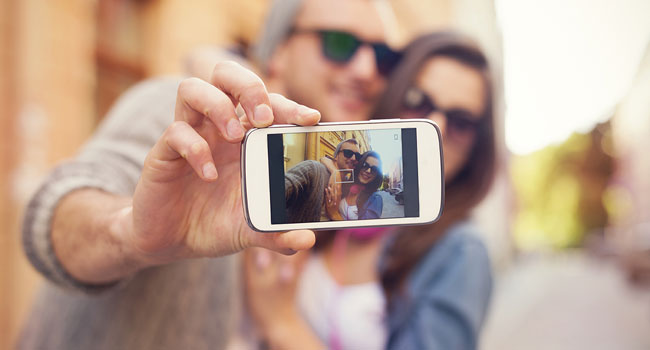
Habits to Keep Your Digital-self Safe
- By Ginger Hill
- Sep 11, 2015
Isn’t it crazy how we get so comfortable with our daily routines that they just come naturally, particularly with our online habits? We tend to share with our networks on a regular basis, but you might not realize just how much you’re actually sharing with complete strangers.
Have you ever posted awesome vacation pics on Twitter, Facebook or Instagram using public Wi-Fi? I’m guilty! There are just some pics that just can’t wait, right? Well, public Wi-Fi is a major hazard because all the information that you’re transferring is available to everyone on a public Wi-Fi network. Yikes! Think about it. Others can listen to your private convos, get access to passwords, and even gain control of your online accounts.
Here are 8 habits that you need to ditch and 1 habit you need to incorporate into your daily routine to keep your digital-self safe:
- Do not send sensitive information over public Wi-Fi. If you wouldn’t physically say something in public, then don’t say it publically on digital either. While it’s fun to work from coffee shops sometimes, avoid accessing private financial information or sharing personal details in emails or social media.
- Never connect to strange Wi-Fi networks. Just like texting while driving, it can wait. There’s nothing so important that you have to say that would justify you logging onto a Wi-Fi network that you don’t know.
- Never EVER share your phone number. While this is fairly explanatory, I still see people posting their phone numbers on their Facebook feed. Not a smart idea.
- Don’t share social or vacation plans on social media. I’m SO guilty of this one, but when you think about it, it’s not too smart in terms of home and personal safety. You’re broadcasting where you’ll be at a certain time which could be dangerous to your personal safety and at the same time, you’re sharing when you won’t be at home, which could be an enticing invite for burglars.
- Don’t post every detail to every social network. It’s pretty cool for those of you who have all your networks synced up so that when you post an update on one social platform, it automatically goes out to all of them. If one of those networks gets compromised, a hacker could post to all of your social media accounts.
- Never publicly share photos of kids with their real names. There’s a reason Jane Doe is used so much. Savvy parents are referring to their children with a unique hashtag or nickname that only family and friends know to protect their identity while still sharing fun photos of their pride and joy. This helps to prevent people from “googling” children’s names so that they can start a web presence when age appropriate as opposed to “googling” their name only to find hundreds of embarrassing baby photos posted years ago!
- Don’t share private, identifiable info on social media. It’s fun talking about your furkid online, but if you’ve also used their name as a password or as the answer to a security question for online accounts, not smart to share his/her name with the world.
- Never EVER eVeR EvEr share passwords. When it comes to email, banking, Facebook, Twitter, etc., there’s never a good reason to share your passwords. However, if you absolutely must share a password to an important account, set a reminder to immediately change the password after it is used.
- Turn on two-factor authentication. This is the easiest way to help lessen the chances of your online accounts from getting hacked. When you log into one of your accounts from a new or unrecognized device, the two-factor authentication service sends you an email or text message with a code to input in addition to your password. It’s like having a double lock, each with a unique key on your accounts!
About the Author
Ginger Hill is Group Social Media Manager.